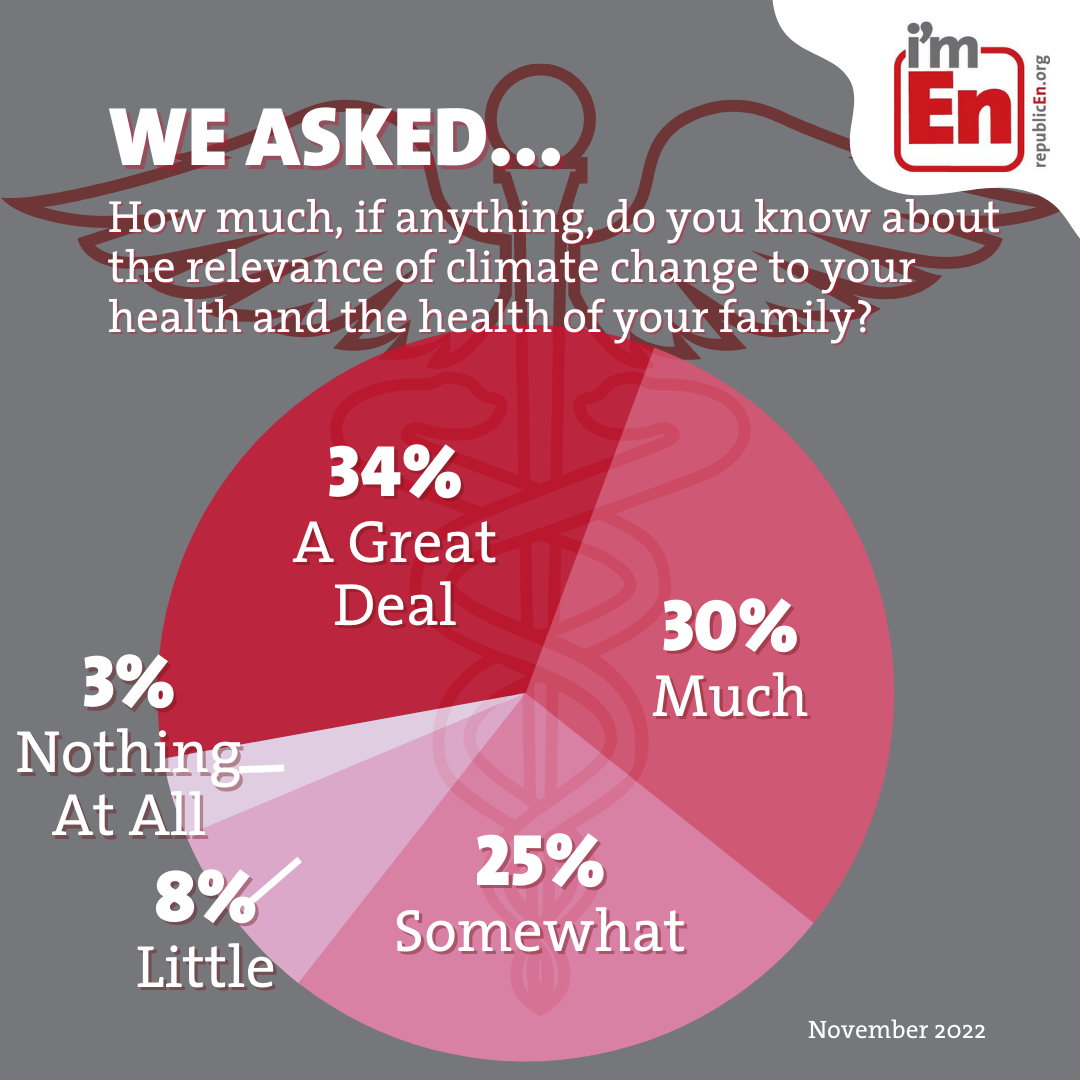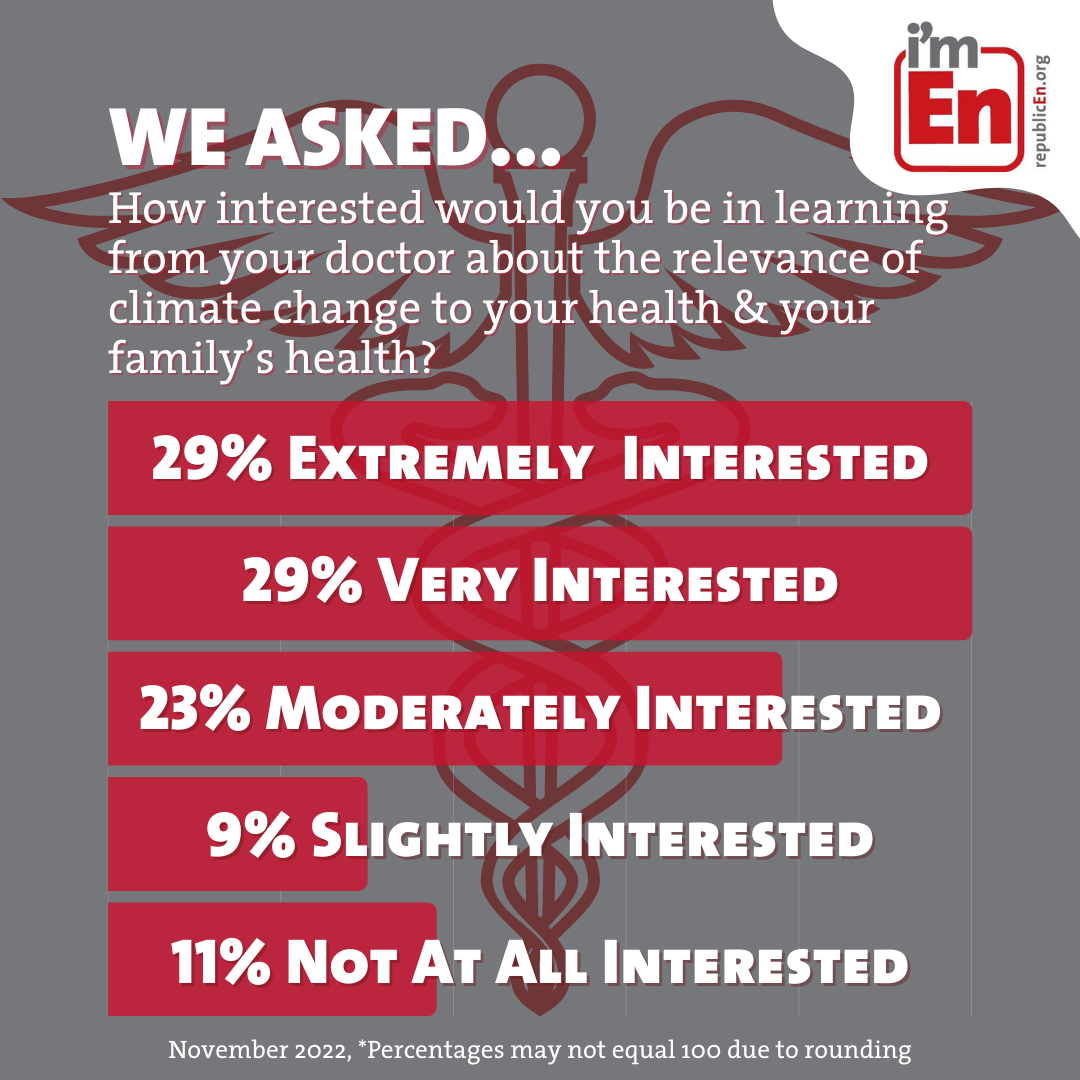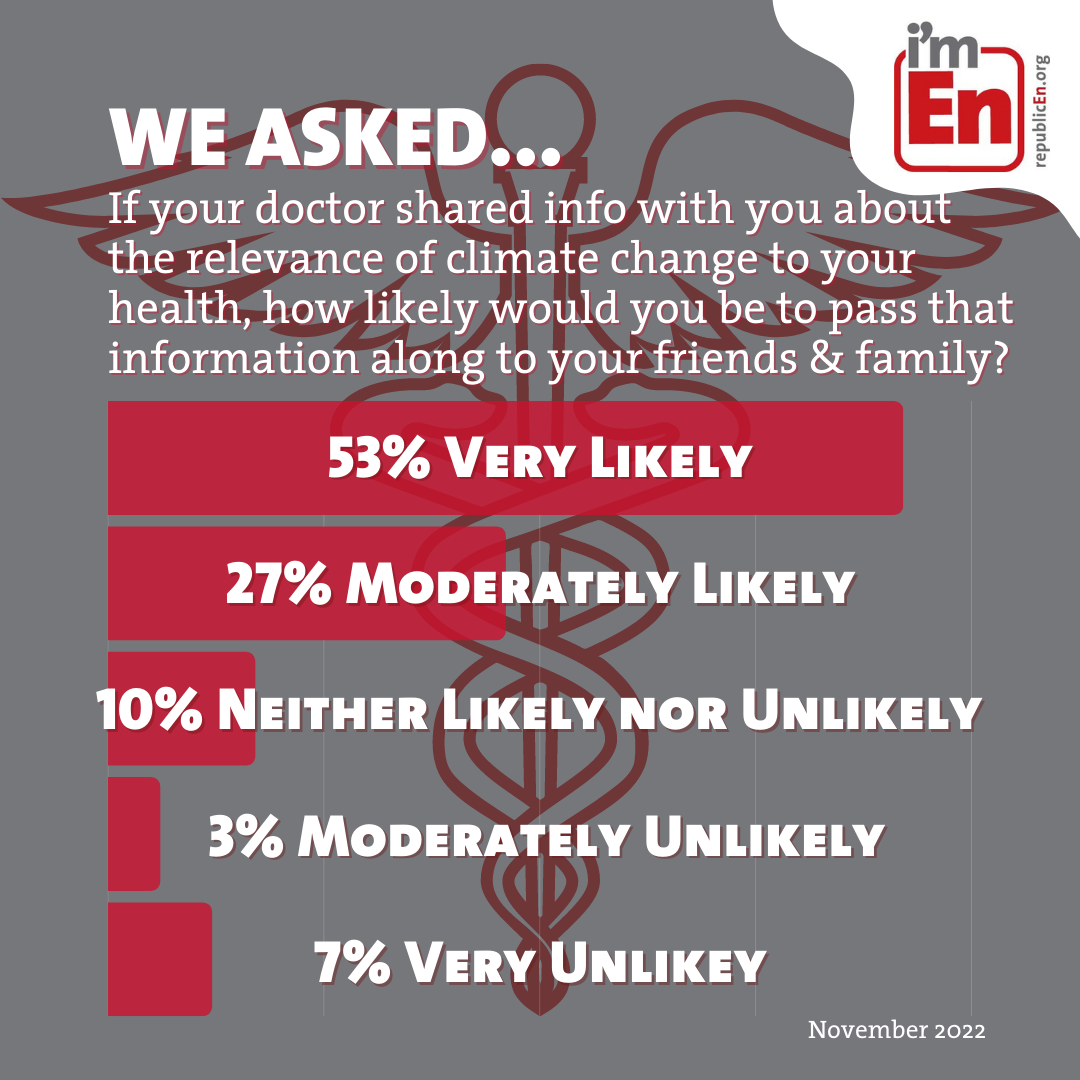November’s poll was a collaboration with our friends at George Mason University’s Center for Climate Change Communication. They are preparing for a National Science Foundation (NSF) grant proposal and asked for our help.
If funded, they plan to develop an online training course for health professionals to teach them how to communicate with patients, the public, the press, and policymakers about climate change as a health issue. It will be called Climate Communication Master Class for Health Professionals. Results from November’s poll will be used to boost their grant proposal!
Here are the poll results:
George K. in Virginia shares, “I have two wonderful grandchildren who are going to be living with ever increasing health impacts of climate change and I want to know what doctors have to say.”
Poll answers represent republicEn members across 34 states, plus the U.S. Virgin Islands and Portugal. California raked in the largest amount of pollees, followed by Texas and then Washington. The political leaning of poll takers: 43% lean Right, 36% claim Center, 20% lean Left, and 1% are unsure or prefer not to say.
-
-
- “Environmental health is human health. Species diversity is human health. Soil health is human health. It is all connected. We are all connected.” – John W. in Utah
-
-
-
- “I am a physician who is working full time on climate advocacy and I have started a non-profit in Michigan (https://www.michigancca.com/) to encourage health practitioners of all types to do just what you are suggesting. ” – Elizabeth D. in Michigan
-
-
-
- “I think we have a problem with this issue. During COVID medical advice was strongly politicized. There are many among us who now only believe MDs when they agree with us. For example, note that Kevin McCarthy is planning to ‘investigate’ Dr. Fauci. Using MDs effectively will be as challenging as using Climate Scientists effectively. ” – Barrie M. in Nebraska
-
-
-
- “Public health officials are the best option to communicate climate and health messages, rather than health care providers who are already overburdened. Clinicians are trained to treat individuals rather than populations. Many patients would also view climate discussions as a political issue, and it might create a barrier to good care. Best to work with state and local health departments. ” – Matthew C. in New Hampshire
-
-
-
- “Climate change will affect all areas of our lives. People need to be hearing about it across a wide range of sectors, including their health providers. ” – Kathryn L. in Indiana
-
-
-
- “My physician would need to cite sources.” – Stanley P. in Texas
-
-
-
- “This is aspirational. If the healthcare industry allowed physicians more time with patients during wellness checkups, this could be addressed.
The US healthcare system tends to treat symptoms, not the cause… multiple reasons. Not all people go for annual checkups due to lack of insurance, price, or time. “If I’m not sick, I don’t need to see a doctor.” Doctors are still trying to get patients to stop smoking… – Lucie B. in South Carolina
- “This is aspirational. If the healthcare industry allowed physicians more time with patients during wellness checkups, this could be addressed.
-
-
-
- “Would also be able to hear this from impactful organizations like AARP as many people listen to some of these orgs.” – Deborah D. in Idaho
-
-
-
- “If a doctor finds it relevant to talk about the dangers of heat stroke, for example, that’s fine. But phrasing it in terms of “climate change” just seems to muddy the waters. Doctors who see patients on a regular basis should talk to patients about the situation they are in now, rather than predicting future weather.” – Rick D. in Maryland
-
-
-
- “Ozone and particulates are problematic in this area. Ticks and other vectors are increasing, and the beautiful trees in our area are struggling. None of this seems to raise alarm among my friends and neighbors, but if they knew that their health was at risk it might spur action.” – Peg F. in Ohio
-





